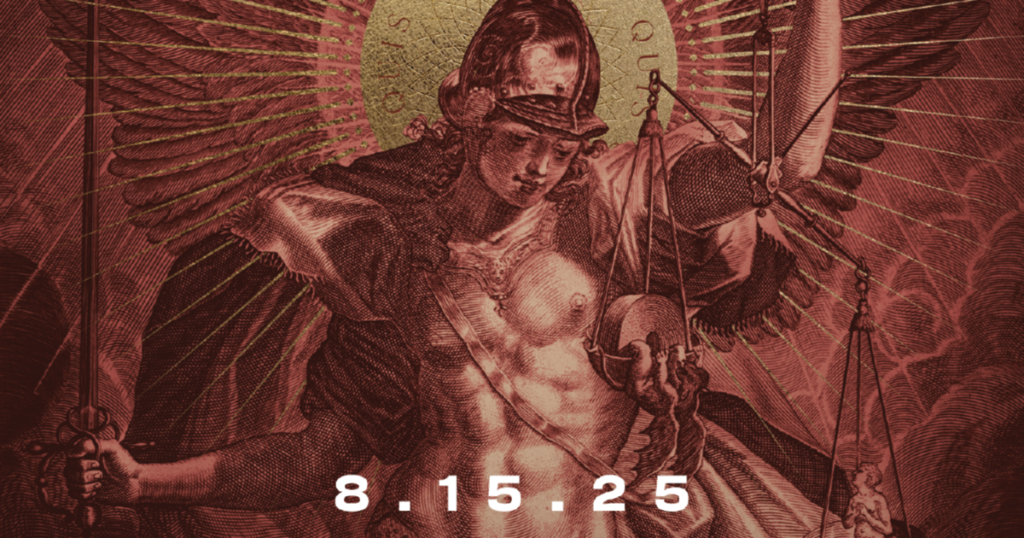Jesus asked his disciples in the Garden: “Could you not watch with me one hour? . . . Are you still sleeping and taking your rest?” (Matthew 26:40, 45). In that moment, he invited them to join in his own prayer of surrender to the Father: “Watch and pray that you may not enter into temptation; the spirit indeed is willing, but the flesh is weak.” (v 41)
In spiritual battle, we can fight back against the flesh by rising to pray in the night!
During St. Michael’s Lent, beginning August 15th, Exodus 90 will add a new discipline: a Night Vigil, rising at 2 a.m. Friday morning for one hour of prayer. We chose this night because it was the night of Jesus’s betrayal and imprisonment before his Passion. This will enable us to respond to his invitation to watch with him, showing him our love and giving stronger resistance to temptation.
The “night watch” referred to those who stayed up to guard their city, looking for any approach of the enemy to sound the warning. When Jesus tells the disciples to watch, he is warning us not to become drowsy in the spiritual life, making sure we are ready for the attacks of the enemy so as not to be caught off guard.
From ancient times, monks kept a night vigil (vigilia is the Latin word for the ‘night watch’). They were inspired by Psalm 119, which spoke of praising the Lord seven times during the time and rising in the middle of the night to continue this praise (see verse 62). The psalmist also prays, “I remember thy name in the night, O Lord, and keep thy law” (verse 55) and, “My eyes are awake before the watches of the night, that I may meditate upon thy promise” (verse 148). Some of the Desert Fathers kept vigil the entire night praying in watch during this time of greater temptation.
You might wonder if this should be left only for the monks. St. John Chrysostom, however, urged the whole family to rise in the night to praise God:
The night is not made just for sleep and rest…. Arise, gaze on the choir of the stars. What deep silence, what great peace! The soul then feels clearer, lighter, more ethereal, as though set free by the sublime. The silent majesty of the darkness invites us to compunction. Get down on your knees; pray; ask God to be merciful. Nocturnal prayer moves him more. You, man, should act like this, not just leave it to your wife. The house ought continually to be an oratory for husband and wife…. If you have sons and daughters, wake them up, and then your house will be like a church during the night; if you have young children, who need more sleep, let them recite some short prayers, and then back to sleep (Homily on Acts 26:3).
How to practice a vigil
But how should we actually practice a vigil? First, it’s important to get out of bed and move to a place dedicated to prayer. You can set up a prayer corner or little altar with an icon of Christ (here is an image you can print), a candle, and the Bible. In the desert, or later in the monastery, the monks would pray the psalms, accepting the words God reveals within them to shape their nightly prayer. They would kneel down or even extend their arms so that they wouldn’t fall back to sleep as easily. If you do happen to nod off, just get back up and finish the best you can. You can also visit a local adoration chapel if it’s open all night for a holy hour before the Blessed Sacrament. We have to remember that the whole purpose of the vigil is to show God our love. We are making time for him in an extraordinary way, not something doing something hard just to prove our own toughness.
The world might think we’re crazy, but putting God even before sleep will lead to an outpouring of grace in our lives. Rising in the night shows how serious we are about prayer and following God’s invitation to keep watch. It may just bring about the breakthrough we need to overcome temptation and the weakness of the flesh.
Join Exodus in living differently this St. Michael’s Lent as we fight back in the great spiritual battle through prayer, asceticism, and fraternity.





